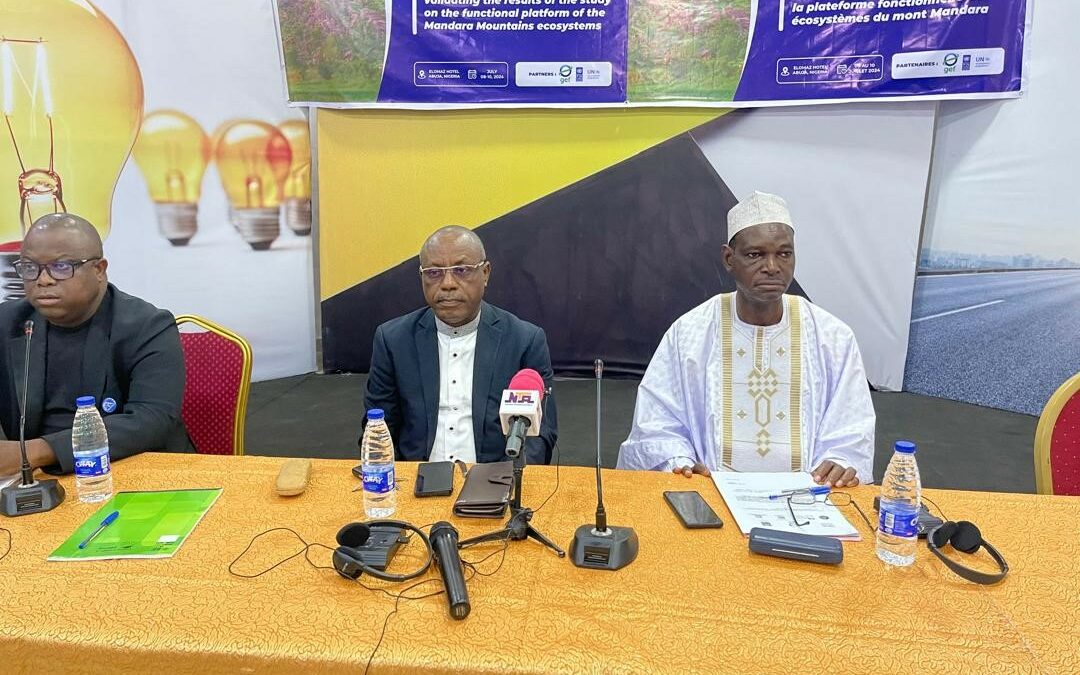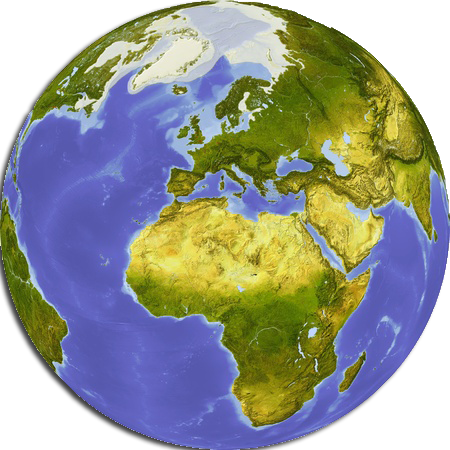From July 8 to 10, 2024, the Nigerian capital, Abuja, hosted the regional workshop for validating the results of the study on the functional ecosystem platform of the Mandara Mountain Plateau. At the end of this meeting, relevant recommendations were made for better management of this ecosystem shared between Nigeria and Cameroon.
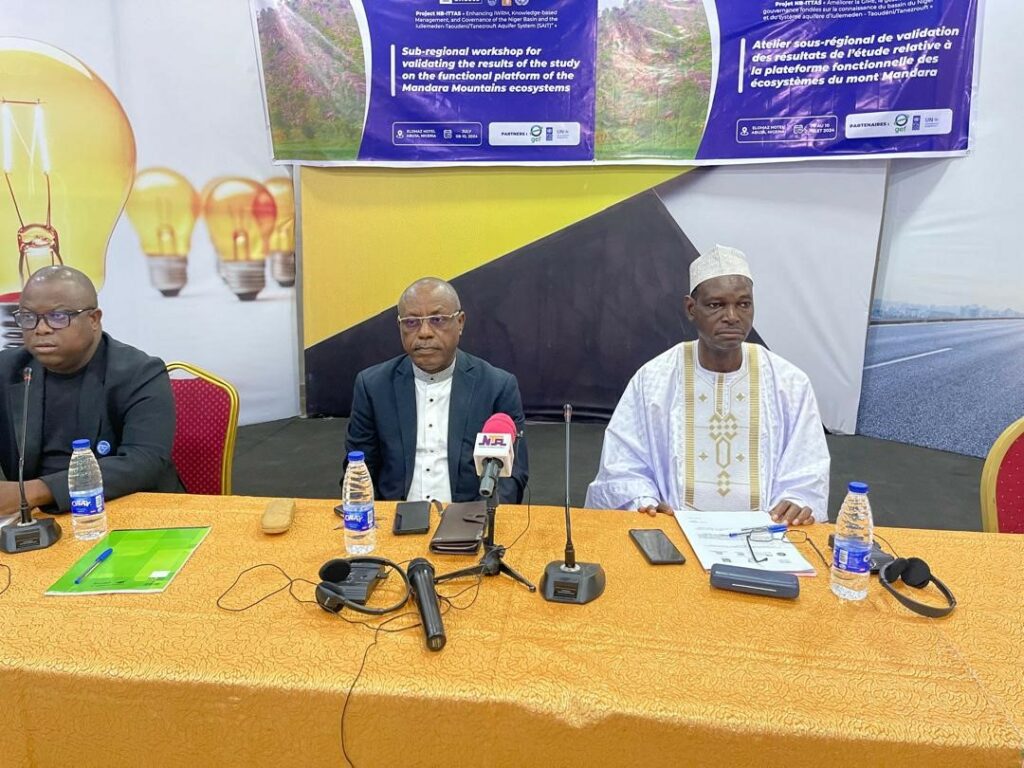
Quietly, the NB-ITTAS Project is working to improve the management, governance, and conservation of natural resources in the Niger Basin and the Iullemeden – Taoudéni/Tanezrouft aquifer system. The regional workshop for validating the study’s results on the functional ecosystem platform of the Mandara Mountain Plateau is a prime example. During the three-day workshop, participants reviewed, through a series of presentations, documents on the pilot project, the capacity-building program, and the monitoring system of the Mandara Mountain Plateau ecosystem. Group work sessions that followed allowed participants to enrich these documents, considering two aspects: the available budget for implementing the selected activities and the timeframe for execution, which must align with the remaining period for the NB-ITTAS project implementation. Based on these foundations, participants identified the most relevant activities of the pilot demonstration project to be executed within the project’s allotted timeframe.
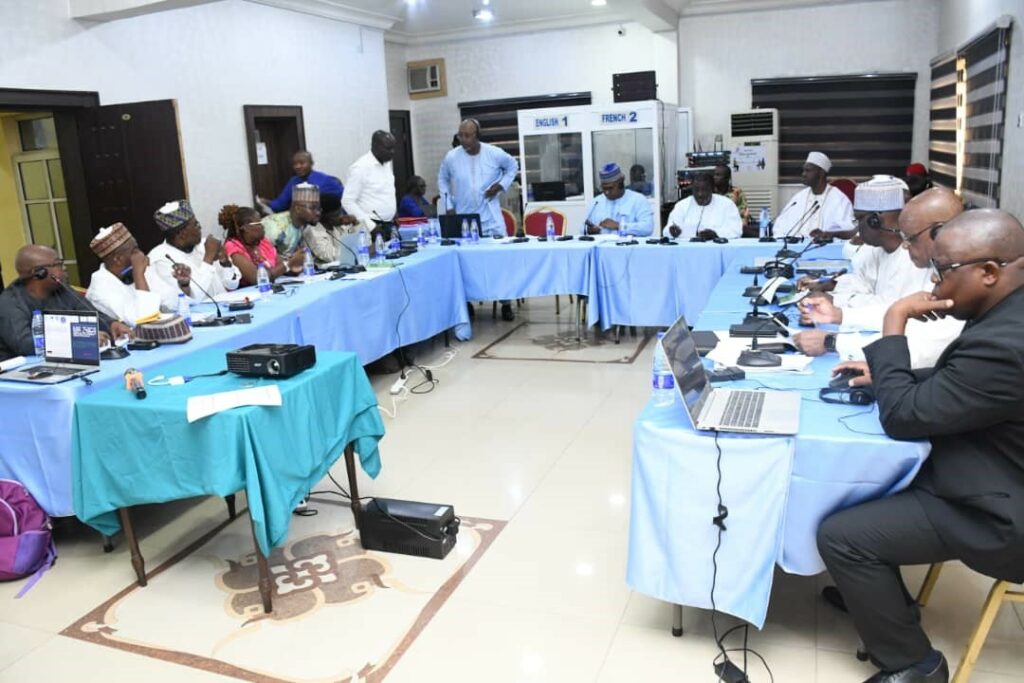
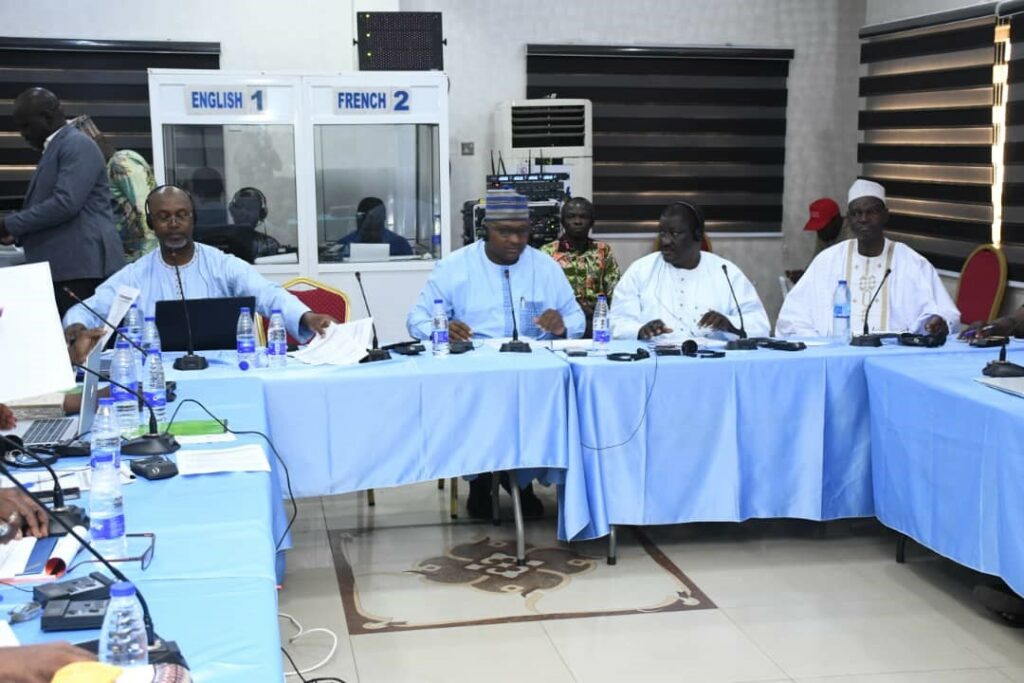
The workshop also focused on the program for strengthening the organizational and technical capacities of project beneficiaries for its effective implementation and the joint monitoring system to support governance structures. This involves identifying the priority and common indicators for monitoring the ecosystems of the Mandara Mountain Plateau in Cameroon and Nigeria.
Recommendations Made
To All Stakeholders:
➢ Ensure the mandate is fulfilled by executing the project within the allotted time. If deadlines are not met by the end of the year, invite donors for a project extension.
To the NBA/NB-ITTAS:
➢ Develop a capacity-building module for actors on the model/protocol for collecting and processing data related to selected indicators; ➢ Clearly define the mechanism for making funds available for field activities.
To the Consultant:
➢ Integrate a robust monitoring and evaluation framework, including both quantitative and qualitative metrics, into the joint monitoring mechanism of the Mandara Mountains; ➢ Include a section in the context and justification to highlight the insecurity aspect in the Mandara Mountains; ➢ Add indicators related to conflict management, institutional capacity building, and environmental health.
To the States:
➢ Adopt a harmonized data collection and processing protocol for joint monitoring indicators by mutual agreement; ➢ Strengthen anti-poaching measures; ➢ Harmonize joint Cameroon/Nigeria legal texts for better surveillance; ➢ Continue implementing pilot projects with the same NGOs that have proven effective based on their field experiences.
This workshop represents a crucial step in strengthening collaboration and environmental governance in the region by integrating innovative technologies and developing local capacities for sustainable natural resource management.

